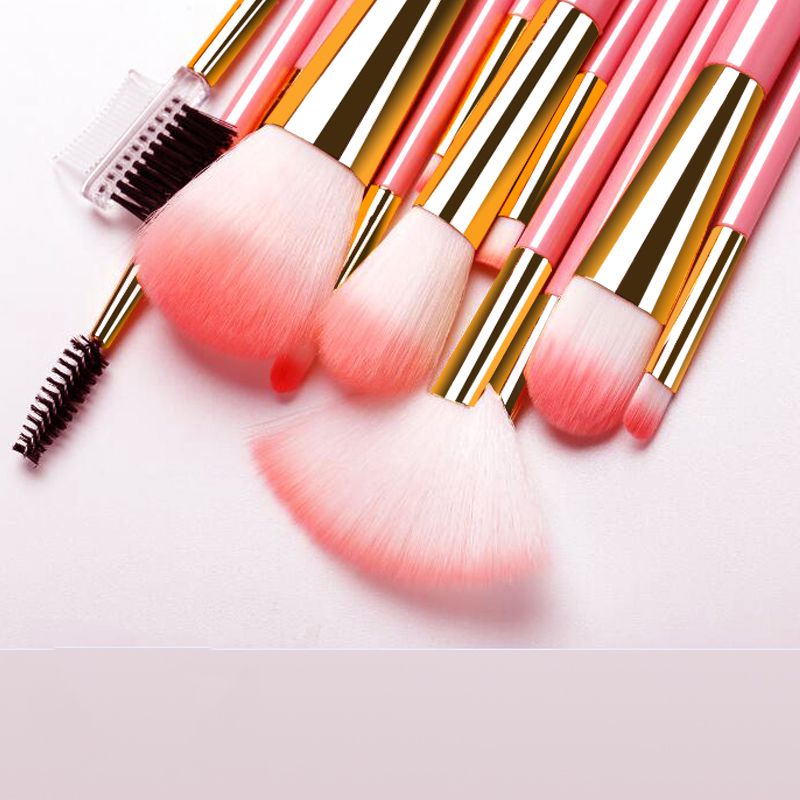Industry news
Sustainability Reports: Top 10 Brush Brands Commit to 100% Recycled Bristles by 2030
- 264 Views
- 2025-07-03 01:31:06
Sustainability Reports: Top 10 Brush Brands Pledge 100% Recycled Bristles by 2030
In recent years, the beauty industry has witnessed a seismic shift toward sustainability, with consumers and regulators alike pushing brands to prioritize eco-friendly practices. Among the most notable developments, a new wave of sustainability reports reveals that 10 leading makeup brush brands have collectively committed to using 100% recycled bristles by 2030. This bold pledge marks a turning point for an industry long criticized for its reliance on virgin plastics, signaling a future where beauty tools align with global environmental goals.
The decision to transition to recycled bristles stems from multiple converging pressures. Consumer demand for sustainable products has surged: a 2023 Nielsen survey found that 68% of global beauty buyers prioritize brands with clear environmental commitments, while 53% are willing to pay a premium for eco-friendly alternatives. Regulatory changes have also played a role, particularly in regions like the EU, where the Plastic Packaging Tax and upcoming restrictions on single-use plastics are forcing brands to rethink material sourcing. For these top 10 brands—household names and indie favorites alike—adopting recycled bristles is no longer optional but a strategic necessity to stay competitive and compliant.
Yet, the shift to 100% recycled bristles is not without technical hurdles. Traditional makeup brush bristles are often made from virgin nylon or polyester, prized for their softness, durability, and ability to hold pigments. Recycled materials, typically sourced from post-consumer plastic waste like PET bottles or textile scraps, require advanced processing to meet these performance standards. "Recycled bristles need to undergo rigorous cleaning, melting, and re-polymerization to remove impurities," explains a materials scientist at a leading brush bristle manufacturer. "We’re also developing additives to enhance flexibility—critical for ensuring the brush feels as luxurious as its virgin counterpart." Brands are investing heavily in R&D, partnering with suppliers to test recycled blends and refine production techniques, with early prototypes already matching 90% of the performance metrics of traditional bristles.

The impact of this pledge extends beyond individual brands, rippling through the entire supply chain. Recycled bristle production is projected to reduce plastic waste by an estimated 12,000 tons annually by 2030, according to industry analysts. It also creates new opportunities for recycling facilities, which will need to scale operations to meet increased demand for high-quality post-consumer plastic. For manufacturers, the transition requires upgrading machinery to handle recycled resins, but the long-term benefits—including lower raw material costs and access to eco-conscious markets—are substantial. As one brand sustainability director notes, "This isn’t just about meeting a deadline; it’s about redefining what a makeup brush can be—both effective and responsible."
Critics argue that recycled bristles may not solve all environmental issues, pointing to energy use in recycling or the need for better end-of-life disposal for brushes themselves. However, the pledge is part of a broader sustainability push: many of these brands are also exploring biodegradable handles, minimal packaging, and take-back programs to create a circular economy for beauty tools. "100% recycled bristles are a cornerstone, not the finish line," says a sustainability advocate. "It’s about building systems where every component of the brush is designed with the planet in mind."
As 2030 approaches, all eyes will be on these brands to deliver on their promise. For consumers, this means more choices that align with their values; for the industry, it’s a proof point that sustainability and performance can coexist. The top 10 brush brands’ commitment to recycled bristles isn’t just a trend—it’s a transformation, one bristle at a time.











